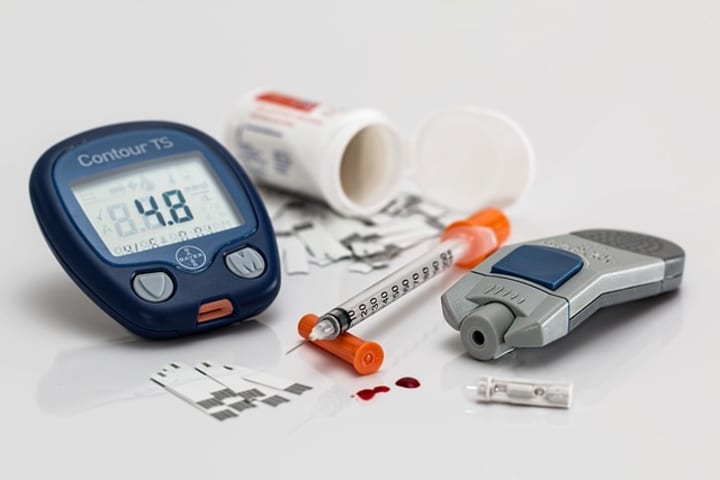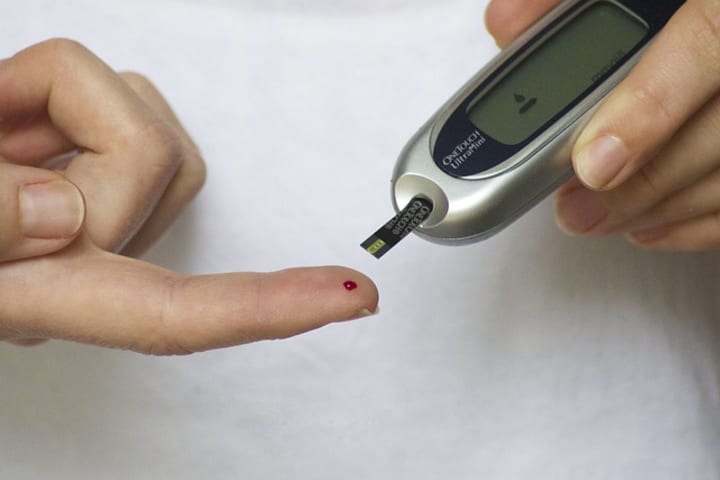Alarming Statistics: Over 100 Million Indians Affected by High Blood Sugar and Diabetes; Pay Attention to These 10 Symptoms
Alarming Discoveries: A recent study conducted by ICMR-India Diabetes has brought forth significant findings. The study revealed that an astonishing 101 million Indians are currently diagnosed with diabetes, with an additional 136 million classified as pre-diabetic. This highlights the critical importance of early detection, timely treatment, and the adoption of lifestyle changes to effectively manage diabetes.

Even if frequent urination and extreme thirst are early signs of diabetes, weight loss can still happen despite increased appetite.
Diabetes problems include blurry vision owing to fluid changes in the eye lenses and poor wound healing as a result of the disease.
Diabetes can impair immunological function, increasing a person's susceptibility to infections.

Alarming Statistics: A new research by the Indian Council of Medical Research (ICMR) that was published in the journal The Lancet Diabetes and Endocrinology has shown the worrying prevalence of diabetes in India. According to the report, over 100 million Indians have diabetes at this time, with a whopping 101 million people having the disease officially diagnosed and an additional 136 million being pre-diabetic. These results highlight the urgent need for efforts to address the rising burden of diabetes in the nation, including awareness, prevention, and efficient management.
Unsettling facts on the prevalence of diabetes in India have been revealed by a new study undertaken by the Indian Council of Medical Research (ICMR) and published in The Lancet Diabetes and Endocrinology. According to the report, there are now more than 100 million people living with diabetes in the country, with an astounding 101 million having received a formal diagnosis and an additional 136 million being classified as pre-diabetic. These results highlight the urgent need for comprehensive efforts to address the rising incidence of diabetes in the country, including awareness campaigns, preventative programmes, and effective management techniques.
The founder and director of City X-Ray & Scan Clinic, Dr. Sunita Kapoor, a consultant pathologist, emphasises the relevance of diabetes as a chronic disorder that affects how the body uses glucose or blood sugar. Along with gestational diabetes, which affects pregnant women, Type 1 and Type 2, formerly known as insulin-dependent and non-insulin-dependent diabetes, respectively, are different types of diabetes. Healthcare specialists stress the need of early diabetes identification and treatment to prevent long-lasting and irreparable physical harm.
Dr Sunita Kapoor lists the following symptoms:
10 Signs Of High Blood Sugar You Should Watch Out For
1. Often urinating
2. Significant thirst
3. Unexpected weight loss
4. Fatigue
5. Increased appetite
6. Slow wound healing
7. Distorted vision
8. Many infections
9. Tingling or numbness in the extremities
10. Areas of tanned skin
Further explaining, Dr. Kapoor says, "Early indicators of diabetes include frequent urination and extreme thirst, along with mysterious weight loss despite increasing appetite. Additionally, a common symptom is fatigue. Diabetes has the ability to affect several organs, which can result in consequences including sluggish wound recovery and blurry vision brought on by fluid changes in the eye lenses. Additionally, it can impair immunity, making people more prone to illnesses. Numbness or tingling feelings in the hands and feet can be brought on by nerve injury. Additionally, patches of skin that are darker in some regions of the body are possible.
High Blood Sugar: Blood Tests To Detect Diabetes

Diabetes must be identified as soon as possible, and diagnostic tests are essential for recognising and managing this illness. According to Dr. Kapoor, "Commonly used tests are used to diagnose diabetes and monitor blood sugar levels, such as blood glucose testing, oral glucose tolerance tests, and fasting plasma glucose tests. Tests for glycated haemoglobin, lipid profiles, kidney function, and urine microalbumin and creatinine ratios can offer additional data for long-term glycemic management and the identification of related problems. For quick intervention, medication modifications, and the maintenance of a healthy lifestyle for people with diabetes, routine diabetes testing is essential.
Reference: https://zeenews.india.com/health/high-blood-sugar-over-100-million-indians-have-diabetes-do-not-ignore-these-10-symptoms-2619841





Comments
There are no comments for this story
Be the first to respond and start the conversation.